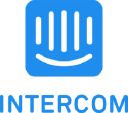Starting From 0 To Build A $35K/Month HR Platform For Restaurants
Hello! Who are you and what business did you start?
Hi there, I’m Luca Lotterio from Italy, born in Rome, a psychologist that worked in restaurants around Europe and I’m currently in Turin developing Restworld, a matching HR platform vertical in the restaurant industry.
The startup, with 3 years of activity and 1 and a half of Covid (!) has now more than 800 customers and a community of more than 72,000 subscribers that use Restworld to find a job in beautiful destinations in Italy.
We’ve been working on algorithms, funnels, and matching algorithms for months bringing revenues from 0 to half a million in 2023, and now we’re almost ready to start scaling the company.

What's your backstory and how did you come up with the idea?
Well, when I was in high school I understood that to be independent I had to find a way to earn money. So I started...





































